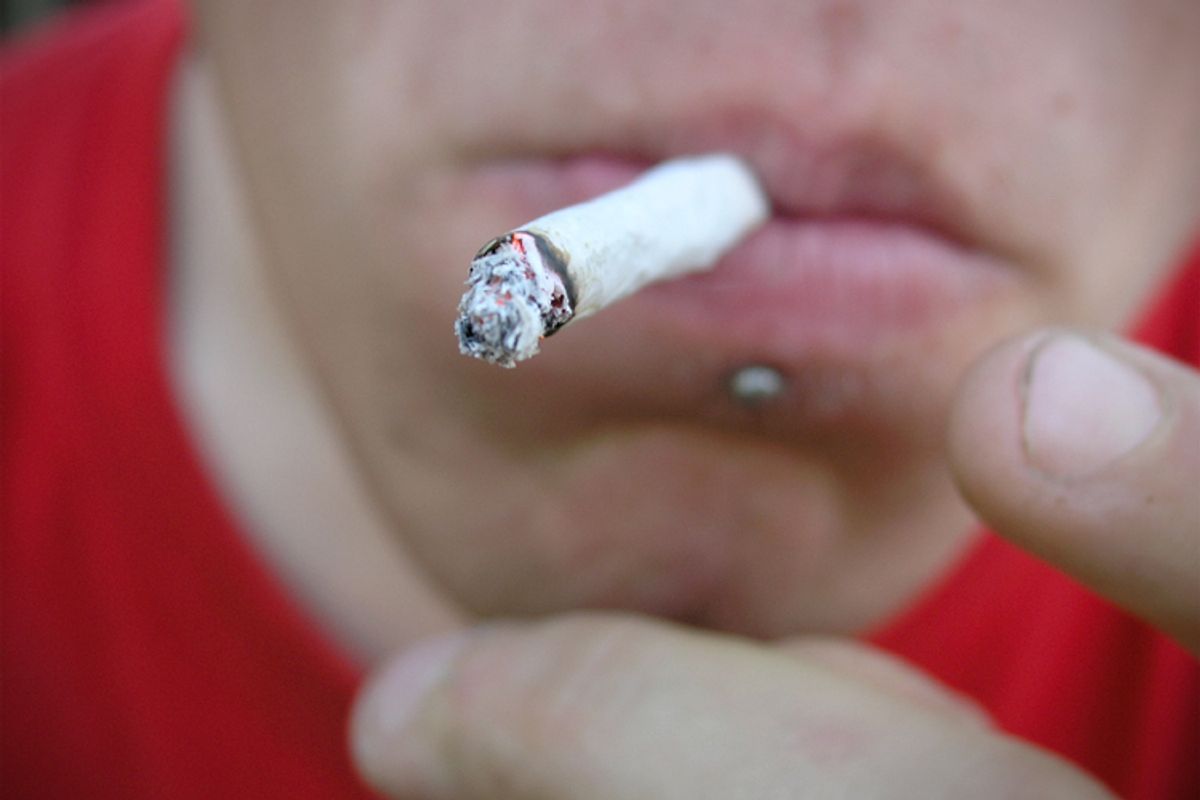The newest addition to "Studies that prove things we already basically knew" comes in the form of a meta-analysis of previously conducted studies on pot and achievement. A team of researchers led by Richard Mattick, a professor at Australia's National Drug and Alcohol Research Centre at the University of New South Wales, found that teenagers who get high every day are at a higher risk of becoming drug dependent, committing suicide or trying other drugs and are less likely to do well in school.
Reuters' Kate Kelland reports:
The study, published in The Lancet Psychiatry journal, analyzed data on up to 3765 participating cannabis users in terms of seven developmental outcomes up to the age of 30 years.
Those factors were completing high school, obtaining a university degree, cannabis dependence, use of other illicit drugs, suicide attempts, depression and welfare dependence.
It found clear and consistent associations between frequency of cannabis use during adolescence and most young adult outcomes investigated, even after controlling for potential confounding factors including age, sex, ethnicity, socioeconomic status, use of other drugs and mental illness.
Interestingly, dose does play a role in how much the risk goes up. Daily smokers are much more likely than weekly or monthly smokers to experience the above outcomes, yet the risk of even occasional smokers is elevated.
"Our findings are particularly timely given that several U.S. states and countries in Latin America have made moves to decriminalize or legalize cannabis, raising the possibility the drug might become more accessible to young people," said Mattick.
Still, the study makes a sizable leap when it comes to causation vs. correlation. The Washington Post's Christopher Ingraham makes a good point:
The researchers did a fantastic job of trying to account for a number of confounding factors. But particularly when it comes to the educational outcomes, there are a lot of factors at play. For instance, if a teacher knows or even suspects that a certain kid is using drugs, that may predispose the teacher against that student. "Teachers are very likely to stigmatize drug users," says Joseph Palamar, co-author of another recent study comparing teen marijuana and alcohol use. "That stereotype gives kids problems, and that kid's not gonna want to go to class."
Palamar also says that because marijuana "is an illegal drug, you have to buy it in an illegal manner, and then you’re exposed to the black market. Marijuana use is affiliating you with other kids, some of whom might be problematic – people more likely to question authority. You become affiliated with things that might have a negative impact on your education."
In other words, the fact that marijuana is illegal could lead to a number of the above outcomes. When a teen is caught drinking, he or she might receive a citation at most, while marijuana possession results in criminal charges. Legalization and integration of the drug into a culture of moderation could decrease the likelihood of some of the aforementioned negative outcomes.

Shares